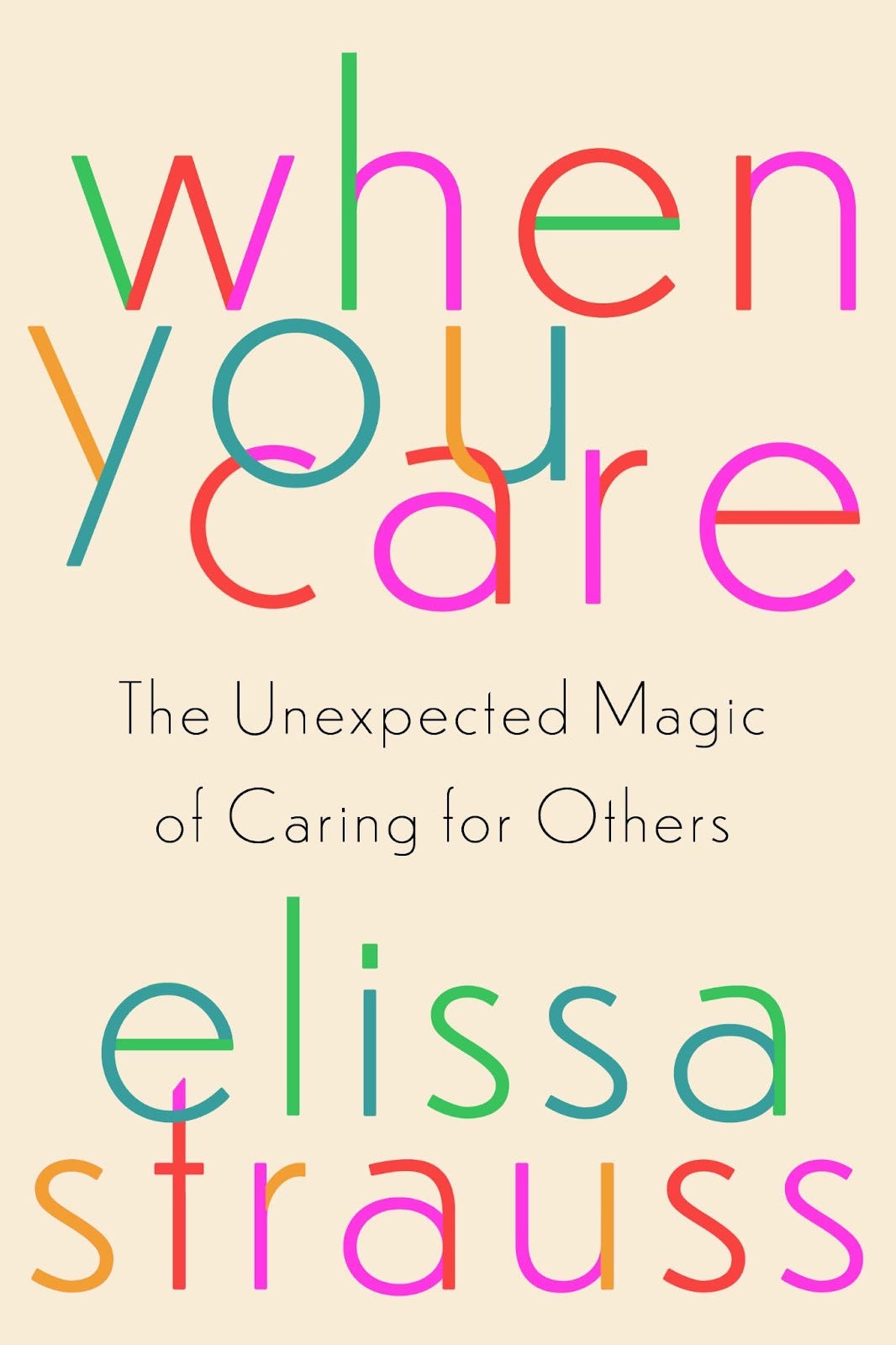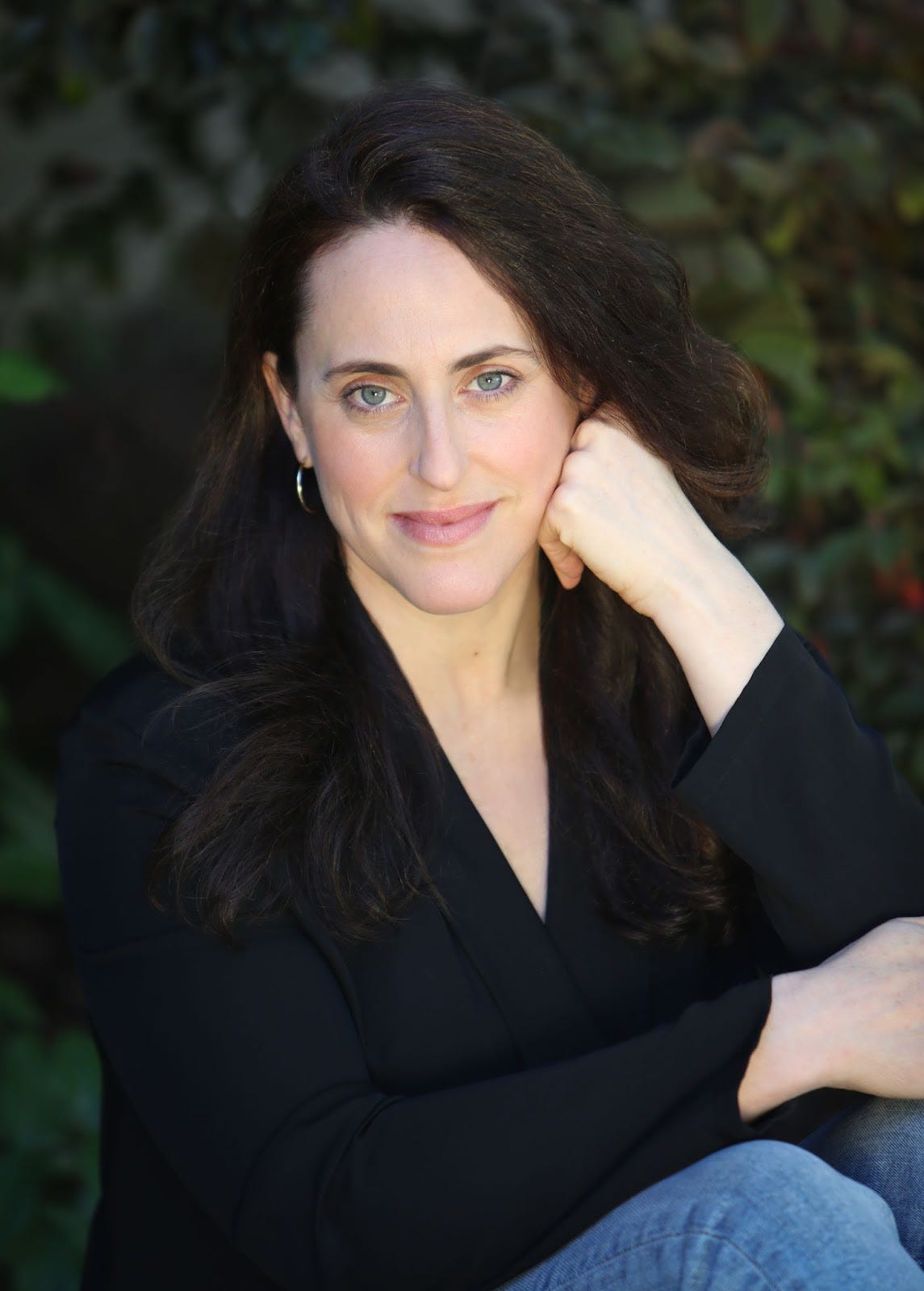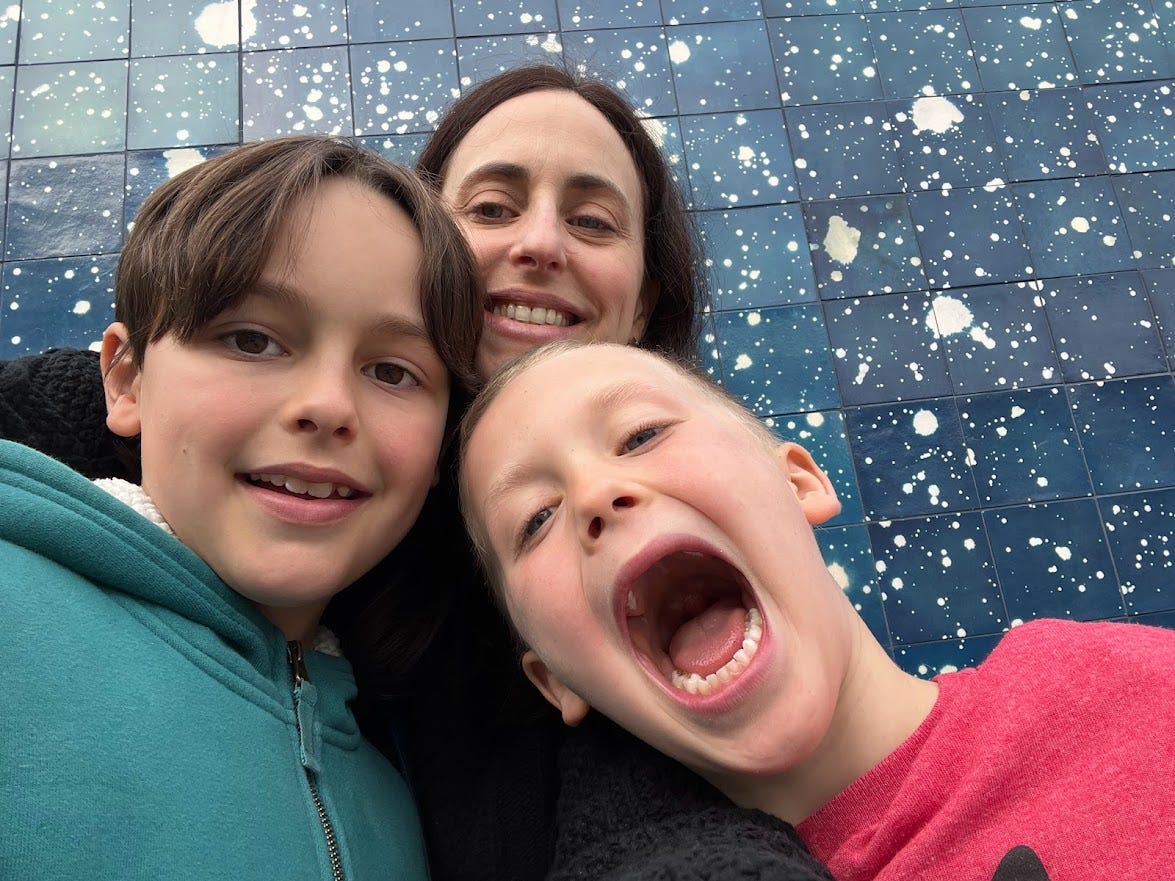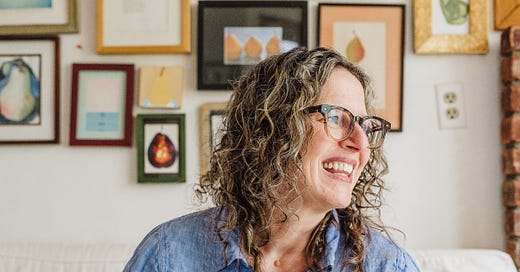

Discover more from Write More, Be Less Careful
"Don’t let that patriarchal voice telling you that care is boring or doesn’t matter win!"
When You Care author Elissa Strauss on care as a path to "profound unselfing" and the magic of teachers and the school day for getting the work done
Hello there! This is a good creatures interview, a series that explores the intersection of caregiving and creative practice. I’m so excited to showcase people doing lots of kinds of caregiving—people caring for kids or pets or other family members and/or caring for space through gardening or community work or activism—and lots of kinds of creative work.
If you know (or are!) a good creature whose work we should feature, send me an email—you can just reply to this newsletter.
Today’s interview is with Elissa Strauss, whose book When You Care: The Unexpected Magic of Caring for Others touches on so many of the central themes and obsessions of this newsletter. Check out her recent pieces in Glamour, What If Motherhood Was Considered as Ambitious as ‘Real’ Work?, and Slate, It’s Weird Times to Be a Happy Mother, and I know you’ll want to hop right over and buy the book. Below we talk about the incredible level of attunement required by caregiving, the tricky moral questions she’s facing as a parent of school-age kids, and the idea that care can be “a journey through the psyche.”
Who do you care for?
My sons Augie, age 11, and Levi, age 6.
What kind of creative work do you do?
I write books, essays and reported pieces, and curate human interactions (some call this “social practice”) and cultural experiences.

What’s changed in your creative life since becoming a caregiver?
My writing practice gives me an opportunity --excuse? - to burrow deeply within myself, fully inhabit my subjective experience, and mine the pleasures, pathos, ideas and memories I discover within. I love this and don’t consider it self-indulgent, but a necessary part of the creative practice. I very much believe we need the dig into the particular, our particular, to find our way to the universal.
But my writing also benefits from the very opposite--and this is where the caregiving comes in. As much as we need to fully inhabit the subjective self, we also need to step outside of it, to find other ways of looking, seeing, feeling--other ways of being. Care has pushed me deeper into another’s mind than anything else I have ever done, or any relationship I have been in. It is my job as a mom to help these children survive and, hopefully, thrive, and the level of attunement that requires is unprecedented. It can be exhausting, frustrating--especially when even my best efforts to understand them and then tend to them fail--but also an invitation to enter another's consciousness that has, ultimately, benefited my work.
I think some take psychedelics to experience this? Or go on long, unscripted journeys? I want us to put care on the menu as a way to achieve this kind of profound unselfing.
What does it mean to be a good person when one is a caregiver? Clearly I give my sons more than I give really anyone else--materially and emotionally. That’s really just part of the job. But when is that too much? When is it too little? When is it at the expense of others? How do I reconcile their safety at a time when so many other children are unsafe?
What is difficult about being creative and a caregiver?
In the early years it was definitely the exhaustion and feeling of chaos that would spill over into my work day. I also tried to write the kinds of things that would cover--just barely--childcare instead of the things that I really wanted to write.
Today, the challenges look different. My kids have reached a point of self-sufficiency where I don’t wake up deeply exhausted nor go to sleep deeply exhausted every day. The hard parts today are more about the kind of tricky moral questions I think about as a mom/ caregiver and how to work through those in my writing.
What does it mean to be a good person when one is a caregiver? Clearly I give my sons more than I give really anyone else--materially and emotionally. That’s really just part of the job. But when is that too much? When is it too little? When is it at the expense of others? How do I reconcile their safety at a time when so many other children are unsafe? What to do? How to be?
Also, for a long time women were supposed to be endlessly giving and self-sacrificing. So I want to create boundaries and protect myself from being subsumed by care . . . but how many? How wide? How deep? Because I don’t just want to live for myself--and I get a lot out giving.
Navigating the tension between rich and fertile other-directedness and rich and fertile self-preservation/self-cultivation feels like the million dollar question for me and many other women these days, and it is one I work through constantly in my writing.
❤️️ if you find our good creatures inspiring, click the little red heart at the top or bottom to help other creative caregivers find us ❤️️
How do you balance creative practice with care-giving?
The school day. I wish I had a more creative answer, one that could enlighten others and help them find new pockets of time. But for me, it is all about the fact that someone else cares for, educates and nurtures my kids during the day giving me time to write and curate. Hooray for teachers!
Care can be a place of deep insight and epiphany, personal and otherwise. See it as a journey through the psyche . . . and then make sure to protect the time you need to create based on what you learned.
What advice would you give someone who has a creative practice and is embarking on becoming a caregiver?
Care can be a place of deep insight and epiphany, personal and otherwise. See it as a journey through the psyche . . . and then make sure to protect the time you need to create based on what you learned. Also, writing or art inspired by care, or directly commenting on care, can be as rich, friction-filled, eye-opening and profound as any other subject matter. Don’t let that patriarchal voice telling you that care is boring or doesn’t matter win!
a question for you
Elissa’s work touches on so many things I’ve been grappling with myself, especially the tension between caring for others and creating boundaries and space for our own creative work. I particularly loved these questions she shared:
So I want to create boundaries and protect myself from being subsumed by care . . . but how many? How wide? How deep?
How do you think about the boundaries around and between your creative life and your caregiving? How has this changed as your creative work and your caregiving have evolved? I’d love to know!
Elissa Strauss is a writer and curator whose work has appeared in the Atlantic, the New York Times, Slate and elsewhere. Her book “When You Care: The Unexpected Magic of Caring for Others,” is out now from Gallery Books. You can find her at @elissavery on instagram and twitter.
Write More, Be Less Careful is a newsletter about why writing is hard & how to do it anyway. Subscribe to get more encouragement, inspiration, and practical advice sent right to your inbox.
If Write More has helped you in your creative life, I’d love it if you would share it with a friend or click the red heart at the top or bottom of this post so other folks can find us!



















I think my boundaries are fairly fluid and ever shifting! Since having my second child I found myself shifting from fiction (young adult manuscripts) to poetry (with motherhood and children as key themes)
thank you for this space, Nancy -- and all that you do!